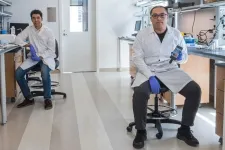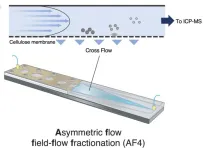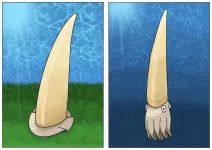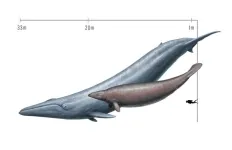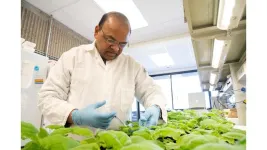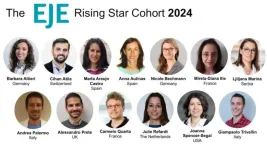(Press-News.org) Using a novel methodology, researchers at The Hospital for Sick Children (SickKids) are the first in paediatric research to use data from an international real-world cohort to overcome the barriers associated with conducting randomized clinical trials in children with rare diseases.
The gold standard for evaluating new therapeutics is through randomized clinical trials, where one group of individuals receives treatment while another does not. Unfortunately, conducting this type of clinical trial proves challenging for many rare conditions due to the limited number of individuals with the condition, making meaningful comparisons difficult. Additionally, in paediatrics, it can be unethical to give a potential treatment to some children and not others.
In a study published in Hepatology, a team of SickKids scientists developed an innovative and robust statistical approach which may eliminate the need for traditional randomized clinical trials, demonstrating the effectiveness of a medication in reducing disease progression and liver transplants in children with Alagille syndrome (ALGS).
“By using a global database, we were able to mimic high-quality clinical trial results by comparing present-day outcomes to historical data,” says Dr. Binita Kamath, Senior Associate Scientist in the Developmental & Stem Cell Biology program and Principal Investigator and senior author of the study. “Not only do our findings show a marked improvement in liver-related outcomes for children with ALGS treated with this medication, but they also present a path forward for randomized clinical trials for other rare diseases.”
Existing medication reduces risk of liver-related outcomes in children with ALGS
ALGS is a rare genetic disorder in which a patient has an inadequate number of bile ducts, which usually drain bile from the liver into the intestine. The bile then builds up and causes liver damage. Between 60 to 75 percent of patients with ALGS undergo a liver transplant before they reach adulthood.
Due to the rarity and severity of the condition, clinical trials have historically been difficult to conduct, especially over longer durations of time, since it is unethical and not feasible to have children take a placebo for several years.
In a previous study describing an international cohort of children with ALGS, Kamath and Shannon Vandriel established an international database of clinical, genetic and laboratory data in children and young adults with ALGS called The Global ALagille Alliance (GALA) study.
In this study, using the data of 469 untreated patients from GALA, the research team were able to compare their long-term outcomes to 84 children being treated with maralixibat, a medication approved in the US and Europe and recently in Canada for symptomatic relief of the severe itching experienced by patients with ALGS.
Using this innovative approach, the research team found that over six years, children taking maralixibat showed a 70 per cent improvement in event-free survival and a 67 per cent improvement in transplant-free survival.
“While the current indication for maralixibat is for itching, our data showed that over a longer period, the medication actually reduces the rate of liver transplants in patients with ALGS,” says Kamath, who is also a Staff Physician in the Division of Gastroenterology, Hepatology and Nutrition.
Laying the groundwork for use in other clinical trials
In addition to these benefits, the methodology used by the research team has ground-breaking implications for the development and implementation of clinical trials for patients with rare diseases.
Kamath and Vandriel believe similar approaches could be applied to any rare disease with enough historical data.
"Our research provides an alternative to the challenges associated with recruiting patients with life-threatening conditions or debilitating symptoms for long-term clinical trials,” says Kamath. “While our study was specific to patients with ALGS, I hope this sparks a renewed interest in international databases of individuals with rare diseases which can provide real-world data that can be used to help evaluate new therapies.”
Funding for The GALA study was provided by grants from The Alagille Syndrome Alliance, Ipsen Pharmaceuticals and Mirum Pharmaceuticals to SickKids Foundation.
END
Overcoming barriers to conducting clinical trials in childhood rare disease research
2024-02-29
ELSE PRESS RELEASES FROM THIS DATE:
Faster and simpler point-of-care malaria test developed by Rice researchers
2024-02-29
Rice University researchers have developed a rapid, accurate test for diagnosing malaria that is significantly faster and easier to use than traditional tests. The advancement has the potential to improve patient outcomes, especially in rural regions with limited health care resources.
Malaria remains a significant global health challenge with an estimated 247 million cases and more than 600,000 deaths annually, the majority of which occur in sub-Saharan Africa. The most severe form, cerebral malaria, has a high mortality ...
Investigating cell killers: Advanced system for size-dependent cytotoxicity analysis of silica
2024-02-29
Metal nanomaterials have become an indispensable part of industrial and medical fields due to their unique and versatile properties. Their size, which imparts them with the desired physiochemical properties, is also the reason for environmental and health concerns. The nano-sized particles in nanomaterials have shown high reactivity towards biomolecules and often even toxicity towards biological cells.
Scientists have attributed this behavior of metal nanoparticles in interaction with biomolecules to phenomena like inflammation or oxidative stress. However, to ensure the safe usage of metal nanoparticles, ...
Poor spatial navigation could predict Alzheimer’s disease years before the onset of symptoms
2024-02-29
People at risk of Alzheimer’s disease have impaired spatial navigation prior to problems with other cognitive functions, including memory, finds a new study led by UCL researchers.
The research, published in Alzheimer’s & Dementia: The Journal of the Alzheimer’s Association, used virtual reality to test the spatial navigation of 100 asymptomatic midlife adults, aged 43-66, from the PREVENT-Dementia prospective cohort study.
Participants had a hereditary or physiological risk of Alzheimer’s disease, due to either a gene (the APOE-ε4 allele) that puts them at risk of the condition, a family history of Alzheimer’s disease, ...
Black mountain unveils fossil trove
2024-02-29
A team of researchers led by Alexander Pohle has unveiled a treasure trove of ancient fossils from Queensland's Black Mountain. The findings, published in PeerJ Life & Environment, shed new light on the complex three-dimensional siphuncle morphology of Plectronoceratids, a pivotal group of molluscs from the latest Cambrian period.
The study surpasses the entirety of previously documented Plectronoceratid fossils, presenting over 200 well-preserved specimens. These fossils, meticulously collected by the late Mary Wade and her team during the 1970s and 1980s, offer unprecedented insights into the intricate structures of these ancient creatures.
Pohle's team focused on specimens ...
Slimming down a colossal fossil whale
2024-02-29
A 30 million year-old fossil whale may not be the heaviest animal of all time after all, according to a new analysis by paleontologists at UC Davis and the Smithsonian Institution. The new analysis puts Perucetus colossus back in the same weight range as modern whales and smaller than the largest blue whales ever recorded. The work is published Feb. 29 in PeerJ.
A fossil skeleton of Perucetus was discovered in Peru and described in a paper in Nature last year. The animal lived about 39 million years ago and belonged to an extinct group of early whales called ...
Better neutron mirrors can reveal the inner secrets of matter
2024-02-29
Improved neutron mirrors can increase the efficiency of material analysis in neutron sources such as the ESS, which is being built outside Lund, Sweden. The improved mirror has been developed by researchers at Linköping University by coating a silicon plate with extremely thin layers of iron and silicon mixed with boron carbide. Their study has been published in the journal Science Advances.
“Instead of increasing the power on the neutron source, which is extremely expensive, it’s better to focus on improving optics,” says Fredrik Eriksson, researcher at the Thin Film Physics Division at Linköping University.
Together with protons, neutrons ...
Astronomers reveal a new link between water and planet formation
2024-02-29
Researchers have found water vapour in the disc around a young star exactly where planets may be forming.
Water is a key ingredient for life on Earth and is also thought to play a significant role in planet formation, yet, until now, astronomers have never been able to map how water is distributed in a stable, cool disc — the type of disc that offers the most favourable conditions for planets to form around stars.
For the first time, astronomers have weighed the amount of water vapour around a typical planet-forming star.
The new findings were made possible thanks to the Atacama Large Millimeter/submillimeter Array (ALMA) - a collection of telescopes ...
Plant biologists identify promising new fungicides
2024-02-29
A promising new fungicide to fight devastating crop diseases has been identified by researchers at the University of California, Davis. The chemical, ebselen, prevented fungal infections in apples, grapes, strawberries, tomatoes and roses and improved symptoms of pre-existing fungal infection in rice.
Fungal pathogens account for almost a quarter of global crop losses. In the United States, these losses amount to around $150 billion per year. However, fungicide development has been slow for the past 50 years, largely because researchers have had difficulty identifying molecular pathways to target. In a new study published Feb. 29 in ...
Researchers uncover a potential genetic marker associated with better survival outcomes in patients with head and neck cancer
2024-02-29
FINDINGS
Researchers from the UCLA Health Jonsson Comprehensive Cancer Center show for the first time that a gene usually linked to giant axonal neuropathy, a rare and severe neurological condition, also plays a role in inhibiting aggressive tumor cell growth in head and neck cancers.
The team found when the specific genetic variant (GAN gene exon 8 SNP T allele) of the GAN gene isn't present, it leads to the production of certain proteins that make cancer cells more likely to spread and become resistant to treatment.
These findings suggest that the presence of the genetic variant and higher expression of the GAN gene product gigaxonin may contribute ...
European Society for Endocrinology’s European Journal of Endocrinology announces “Rising Stars” in endocrine research for 2024-26
2024-02-29
Thirteen exceptional endocrine researchers from across Europe and the US have been selected as the 2024-26 cohort of the EJE Rising Star Editorial Board by the European Journal of Endocrinology (EJE), a journal published by the European Society of Endocrinology (ESE).
This prestigious opportunity is given to individuals selected by EJE Editors who show promise, achievement and trajectory as leading clinical and translational researchers in endocrinology, with high potential to serve as future editors of EJE.
Through the Rising Stars Programme, awardees are granted the following:
membership ...



